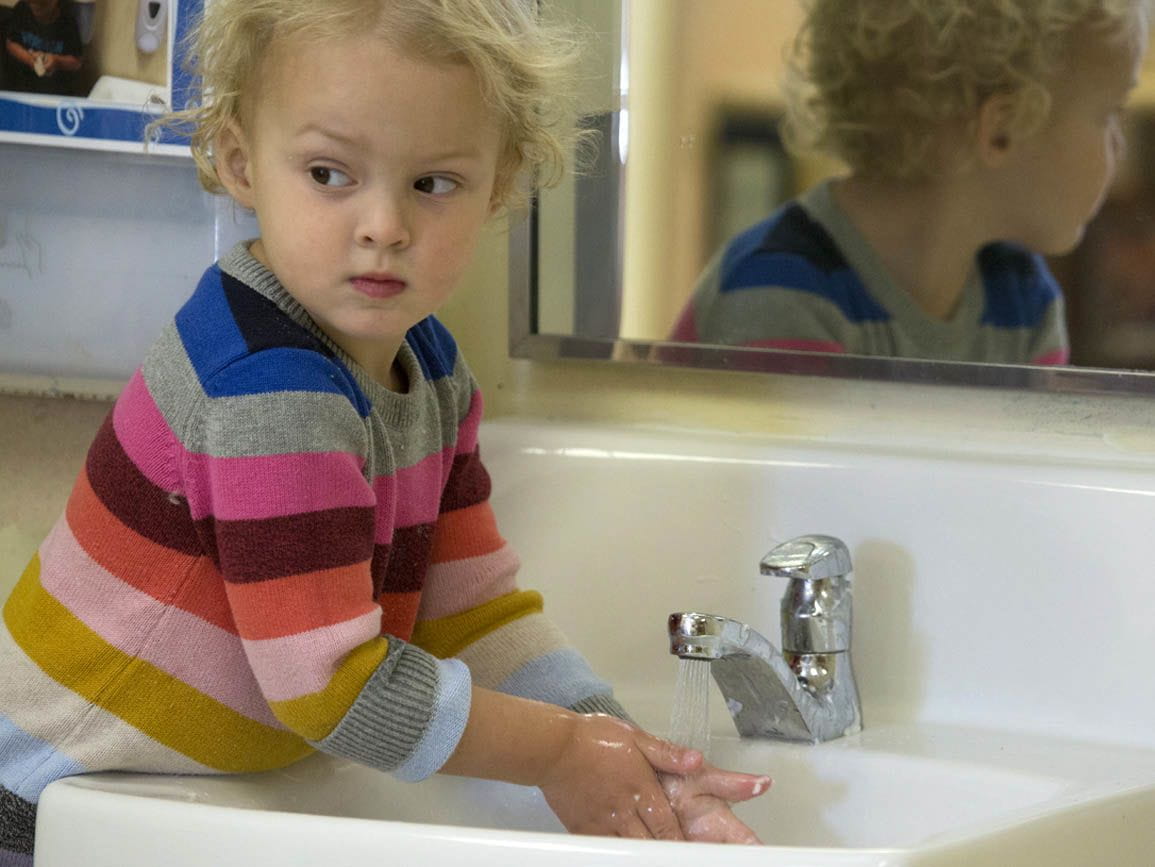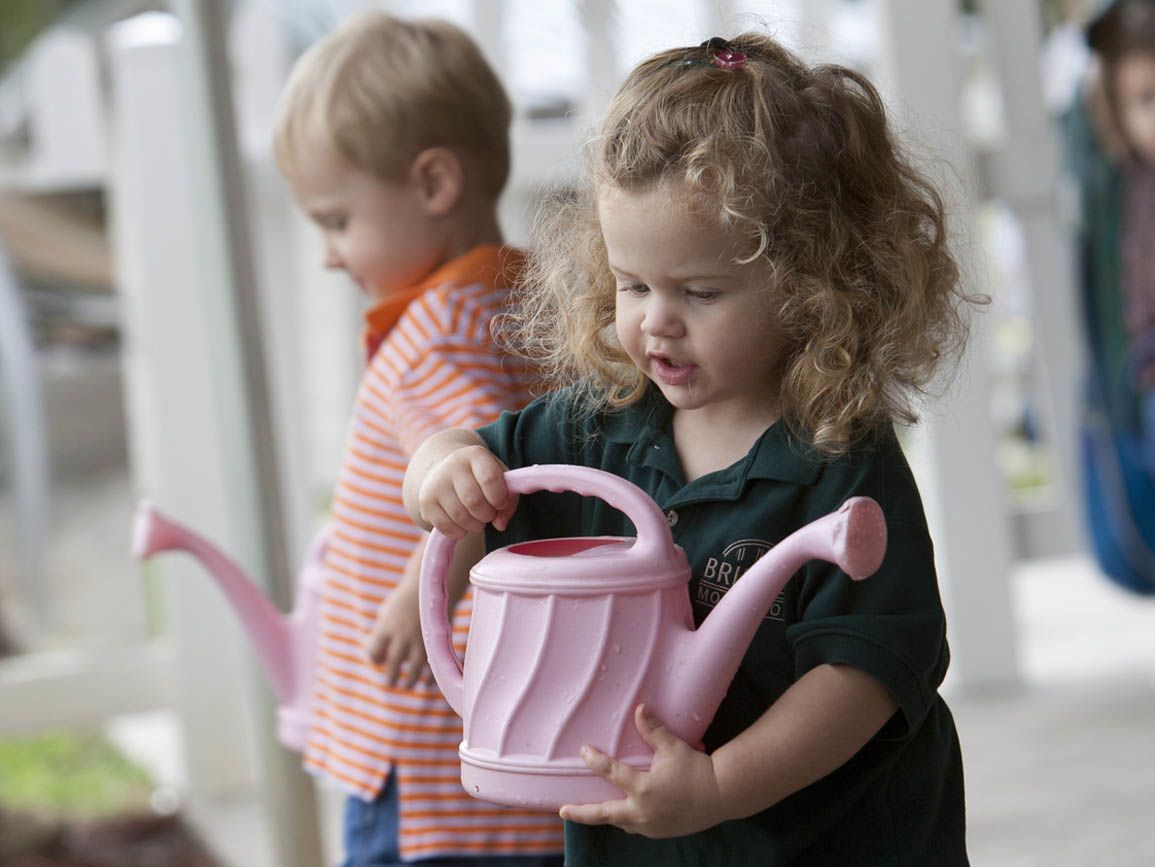Although it's not always apparent, many toddlers do have a code of conduct that makes sense to them. Take sharing, for example.
The Toddler's Rules of Sharing
- If I like it, it's mine.
- If it's in my hand, it's mine.
- If I can take it from you, it's mine.
- If I had it a little while ago, it's mine.
- If it looks just like mine, it's mine.
- If I saw it first, it's mine.
- If you are doing or building something and you put it down, it automatically becomes mine.
- If it is mine, it must never appear to be yours in any way.
- If it is broken, it's yours.
- If it's broken, where's mine?
Toddlers often get a bad reputation for their full-of-life, "I'll try anything" mentality and their lack of knowledge of the rules of the road. That belief may be based in truth, but it's all a matter of perspective.
Things People Say About Toddlers
- They usually make a mess.
- They are stubborn. (They want to do what they want to do when they want to do it.)
- They are reluctant to share. (Would you eagerly share your new car or precious jewelry?)
- They are not always good listeners. (There is so much to hear and much of it is over their heads, literally.)
- They get frustrated often and easily. (Adults get frustrated, too.)
- They never stop moving. (They do sleep, if only for a few minutes, to recharge and run us ragged.)
- They scream, throw tantrums, hit, and occasionally bite. (How can they tell others what they want and use words when they don't have very many?)
Another Perspective on Toddlers
- They are trying to make sense of the world.
- They are in the process of becoming separate individuals.
- They are still learning social skills.
- They are very determined.
- They are learning to communicate.
- They are learning to control their emotions and actions.
- They are passionate about life and learning.
Tips for Dealing with Toddler Behavior
- Make sure your child gets enough sleep. The American Academy of Pediatrics recommends that children consistently obtain at least 9 to 11 hours of sleep each night. When children are even slightly sleep deprived, it not only negatively affects their health, but it can also make it harder for them to control their behavior.
- Establish a routine. A routine gives children a structure and environment that fosters feelings of security, comfort, trust, and less anxiety about the future. They know what to expect, feel more in control, and can learn more easily. Routines give children a better understanding of their world and how they are expected to function in it.
- Have clear, specific rules of acceptable behavior. It sounds silly, but we often don't tell our children the rules. "We're not buying anything at the store except groceries. Please don't ask."
- Be consistent. Children learn from cause and effect—what actually happens. If we are inconsistent in certain situations, regardless of our intention, our children will learn that their inappropriate behavior is a way to get what they want.
- Stop what you are doing and go to your child to deal with inappropriate behavior. Put down the phone, stop the car, ask the 100 shoppers behind you to wait, and come out of the shower dripping wet. When you stop what you are doing and go to your child, you are acknowledging the inappropriate behavior when it happens and correcting your child immediately following his actions.
- Speak to your child at eye level. For young children, this usually requires getting down on your knees, leaning over, or sitting on the floor. For older children, having both of you sit down on the floor, in chairs, or whatever is convenient is the best method.
- Validate your child's feelings. When your child has misbehaved, let him know that you understand or you are trying to understand how he feels. Validate his emotions or intentions. "I know you wanted the toy, but your sister was playing with it."
- Speak in a normal tone of voice. When you are upset with your child, try not to yell, use an angry tone, or grit your teeth. Use a positive, firm, natural tone of voice. In simple terms, explain to your child what she did wrong. he may not know. Instead of, "You made a mess," say, "You took all Mom's books off the shelf."
- Offer your child manageable choices when possible. Give your child a choice between two activities that you propose. "It's time to eat dinner. Do you want to put your seat beside your sister or me?"
- Redirect your child. Instead of reprimanding your child for negative behavior, redirect him to a new and appropriate activity. "You build with blocks. You can't play with blocks if you throw them. You can throw a ball."
- Have logical consequences for inappropriate behavior. Don't allow your child to continue doing what she wants to do unless she does it appropriately. "Write on paper. You cannot use the markers if you write on the walls."
- Follow through. If you tell your child that there will be a particular consequence for an inappropriate action, follow through.
- Give your child positive attention. Some children require a great deal of attention and that can be exhausting. And it's usually those children who may act up because they want even more attention. They may feel that negative attention, our response to a tantrum, is better than no attention. Try getting into the habit of catching your child being good and rewarding her with attention for positive behavior.
- Get the scoop on toddler growth & development and other resources from the American Academy of Pediatrics
- WebMD shares the 7 secrets of toddler discipline
- Read our Taming Temper Tantrums article from the e-family archives
- Our community is talking about good toddler activities and toddler transitioning from crib to bed on our Toddler message board





